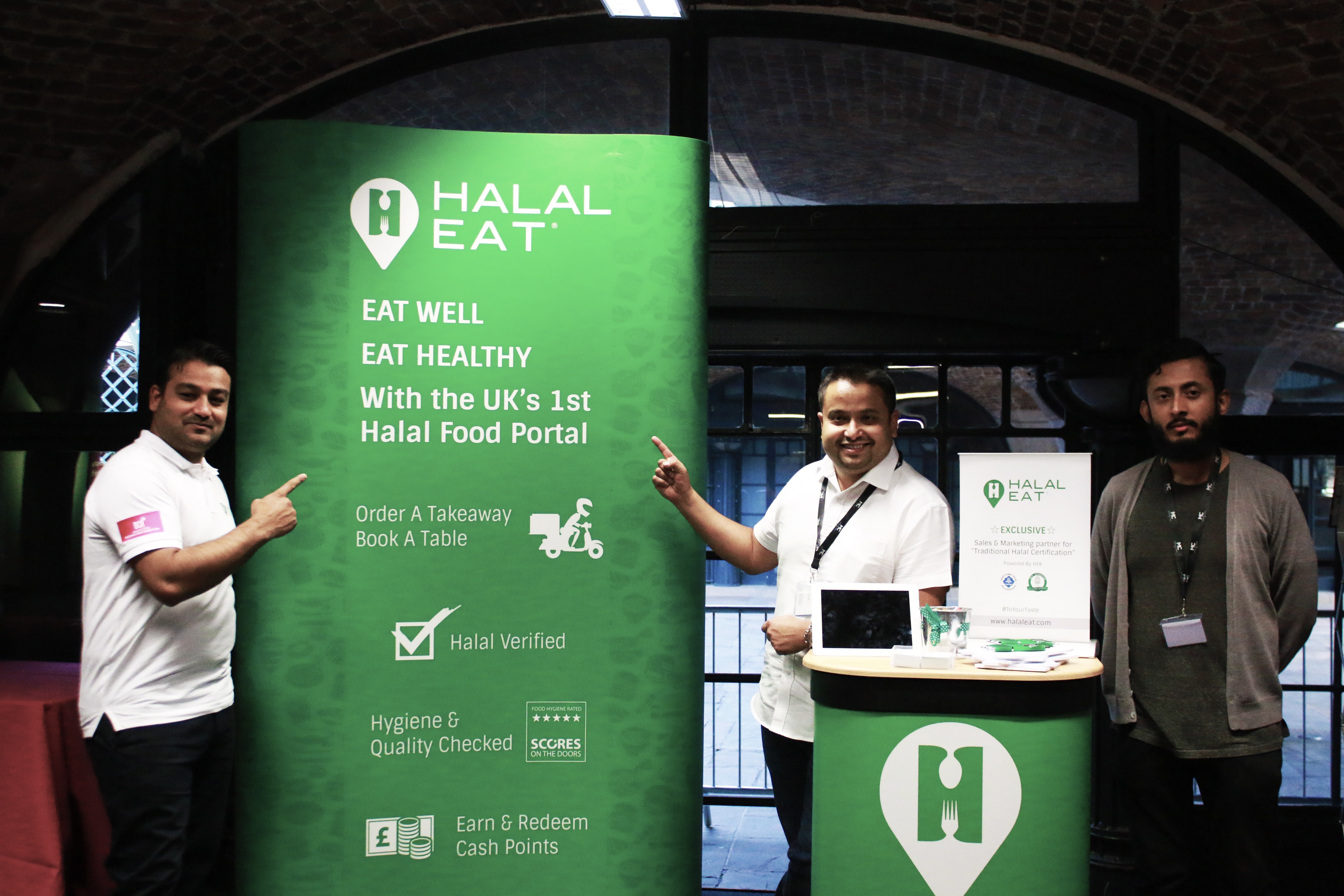UK start-up HalalEat hits 59 pct crowdfunding target in four days, attracts more non-Muslim investors
Photo: L-R - HalalEat founder and CEO Abul Rob, sales manager Ali Hassan, and co-founder Musa Ahmed. Courtesy HalalEat
The United Kingdom’s first ever halal food delivery service, HalalEat, has reached 59 percent of its 100,029 pound ($130,408) crowdfunding target in just four days.
The start-up, launched in November 2015, has so far been bootstrapped and is raising funds to invest in key personnel and tech to grow the company through the next year, Abul Rob, its founder and CEO told Salaam Gateway.
“Our short-term focus is to invest the money in tech development. We’re in the phase of developing our mobile application and increasing our server capability, as well as to hire key talents in terms of developers,†said Rob.
HalalEat is adopting a “prudent†strategy, according to Rob.
“I would have loved to have a bank balance of a million pounds or a million dollars and go lavish but I don’t think we need to. We know that the amount we’re raising will see us through the next eight to twelve months and that will take us to the next milestone,†he said.
“We want to then come back to the market at a later stage and do a higher raise at a higher valuation.â€
NON-MUSLIM INVESTORS
The start-up is valued at 1,328,226 pounds ($1,731,608) pre-crowdfunding and is offering investors 7 percent equity.
Its core revenue comes from commission on order tickets, with average commission at around 12 percent. Average basket spend in February was 23 pounds. It also earns revenue from sponsored advertisements, and referral commission on additional products via affiliate partner networks.Â
According to Rob, HalalEat has attracted more investment from non-Muslims than Muslims. “I’m making a judgment based on their names and where they’re coming from. What I find is that we have a lot of supporters who are Muslims and who are ready to order food online … But what I find is that there are huge amounts of affluent Muslims out there with money in their accounts but for some reason they still go for the conventional business model, which involves brick and mortar,†said Rob.
“In terms of technology, disruptive start-ups, there’s a lot of reluctance within the Muslim community. I wish we had a lot more Alabbars in the UK,†he added, referring to Mohamed Alabbar who recently set up Middle East-focused online shopping platform Noon. Alabbar, who is founder and chairman of Dubai’s Emaar, the developer of the Burj Khalifa, has recently increasingly focused on technology investments and e-commerce.
According to Rob, he has met with resistance from the Muslim community. “During this crowdfunding process we’ve reached out to a lot of influencers within the Muslim community, even getting in-kind endorsements or practical advice, there seems to be a lot of resistance.
“It seems that we as a [Muslim] community tend to hold ourselves back and so whereas my investors, colleagues and peers are egging me on and the consumers are ready to order, there’s a generation gap in that the people who control the wealth hasn’t passed that down to the generation that we’re serving at the moment.â€
CONSUMER DEMAND GROWTH
HalalEat’s captive market is the estimated 3 million UK Muslim population. Its core base of users falls in the 25 to 35-year-old age bracket, with over 60 percent being female, according to Rob. Users of the service include couples with little time to cook.
The service currently has around 150 restaurants on board and mainly serves the Greater London area, according to information provided on crowdfunding platform Seedrs.
The start-up aims to cover the whole of the UK and has sights on “other cosmopolitan cities†around the world.
“At present, we see consumer demand from the U.S., New York in particular, and some interest from Germany,†said Rob, who is keeping a close eye on the Syrian and Iraqi immigration situation in Germany.
At the end of 2015, between 4.4 million and 4.7 million Muslims lived in Germany, according to a report by the Interior Ministry. This represents between 5.4 and 5.7 percent of the country’s population. The report said the share of newly-immigrated Muslims among all Muslims was 27.3 percent.
“These new Muslim communities are just establishing themselves and once they intertwine themselves into the German society we see a big opportunity in the next three to five years for a ‘halal food boom’ in Germany,†he said.
HalalEat is raising funds on UK-based equity crowdfunding platform Seedrs that is currently only open to investors living within the EU and the European Economic Area, according to its website.
UK-resident investors may be eligible for tax incentives under the government’s Seed Enterprise Investment Scheme (SEIS) or Enterprise Investment Scheme (EIS).
© SalaamGateway.com 2017 All Rights Reserved

